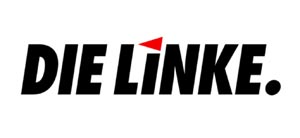17 December 2009 Edition
International: Germany

Rising fortunes of German left
A potentially damaging controversy for Angela Merkel’s conservative German Government sees her defence minister at the centre of a storm over his handling of a row about a German-ordered air strike in Afghanistan that killed civilians.
German involvement in Afghanistan has proved to be deeply divisive. It is credited as one of the reasons that the opposition Social Democrats have been losing ground to a relatively new left-wing party - Die Linke. Here, SEÁN Ó FLOINN examines recent political developments on the German left.
TWENTY years after the fall of the Berlin Wall, Germany is once again experiencing a transformation of its political landscape. Die Linke, The Left in English, are capitalising on a nation’s discontent with capitalism, and are articulating a socialist alternative to Angela Merkel’s conservative government. They seem to be striking all the right chords with a substantial section of the German population and are turning this support into tangible electoral gains. In the Bundestag 2009 Federal Elections, Die Linke, with just under 12 per cent of the vote, secured 76 out of 622 seats, making it the fourth largest party in Germany. It is the largest party in the GUE/NGL grouping in the European Parliament. In the EU Parliament elections, it increased its vote to 7.5 per cent.
Die Linke was founded in June 2007. It was a merger of the Party of Democratic Socialism (PDS) – the successor party to the Socialist Unity Party of Germany who ruled the former German Democratic Republic (GDR) for four decades - and the Electoral Alternative for Labour and Social Justice.
Despite its powerbase and membership coming predominantly from East Germany, it is enjoying increasing electoral success in the West. Die Linke is a broad church of the left comprising members from a range of left-wing political backgrounds from disillusioned Social Democrats to hard-line communists. There are several platforms within the party but they have garnered support by logically concentrating on their common objectives rather than differences.
TERRITORIAL UNITY, SOCIAL DIVISION
Germany though territorially unified, is in many ways still socially divided. The majority of promises made by proponents of German reunification remain unfulfilled. The gap between rich and poor has grown and with it the disparity between incomes in the West and the East. The welfare state has suffered dismantling and Germany’s elite have pro-actively supported the unpopular invasion and occupation of Afghanistan. The reunification has been criticised as hasty, ill-thought out and biased towards the West. Literally overnight 16 million Eastern Germans were incorporated into the new Federal Republic. However, many soon felt like second class citizens, as unemployment soared and poverty increased in their regions. State assets were sold off for a pittance. Ostalgie – literally East nostalgia and meaning nostalgia for the GDR, soon set in as Easterners longed for the strong social protections of the former Eastern state. The SPD’s abandonment of social democracy and warm embrace of New Labour economics under Gerhard Schröder caused a vacuum on the left which Die Linke is now filling.
It was due to the attack on Germany’s welfare state by Schröder and his supporters that Oskar Lafontaine, current co-chairperson of Die Linke, resigned from his position as then minister with SPD in 1999. Lafontaine, who was born along the French border to a poor, working class family, is a charismatic leader who has drastically improved Die Linke’s popularity in the West. Known as ‘Red Oskar’, Lafontaine became Finance Minister in a Social Democrat-Green coalition which dislodged Helmut Kohl’s Conservatives from power. In his governmental role Lafontaine cut tax rates for those on low-incomes, introduced new levies on big businesses and tightened controls on financial markets. In less than a year however he resigned from his post after becoming increasingly disillusioned with Gerhard Schröder and his Blairite shift to the right. He is castigated by the right as a “leftist populist” but is revered by supporters as a highly effective leader, articulate and amiable.
DEMOCRATIC SOCIALISM
Die Linke’s other co-chairperson is Gregor Gysi, an East German born and bred lawyer whose father was an ardent communist who actively organised underground resistance against Hitler’s Nazis. Gysi, a passionate communist himself, is balanced in his views of the GDR. He praises its admirable social achievements in education, employment, culture and general welfare protections but is critical of the state’s former repressive methods.
The Left’s explicit aim is the achievement of democratic socialism. Their ideology is unapologetically left-wing. They reject privatisation, are anti-capitalist and pro-social justice, and argue for a redistribution of wealth through higher corporation tax and increased tax for wealthy individuals. They also support natural resources being under public ownership. They want to introduce a national minimum wage, expand affordable housing and advocate generous maternity leave. They have been steadfast in their opposition to the war in Afghanistan and Germany’s unpopular involvement and have campaigned for a rejection of the Lisbon Treaty. According to their Key Programmatic Points, for Die Linke another world is not just possible but necessary.
Like many European countries, there is little that separates Germany’s two main parties, namely the Christian Democrats (CDU) and Social Democrats (SPD).
Both parties shared power in the a so called ‘grand coalition’ between 2005 and 2009. The SPD have since been criticised for spending more time and energy criticising Die Linke while cosying up to their former senior conservative government partners. What is perturbing them now is that Die Linke is gaining ground, not just in its traditional East strongholds, but in the West. Now it is virtually impossible for the Social Democrats and the Greens to form governments without the Left Party.
The 2005 electoral alliance between the two main groups that now comprise Die Linke enhanced the left’s electoral performance. Bucking a familiar trend on the left of splitting, Germany’s Left Party has opted for unity and seems to be reaping the electoral rewards.
